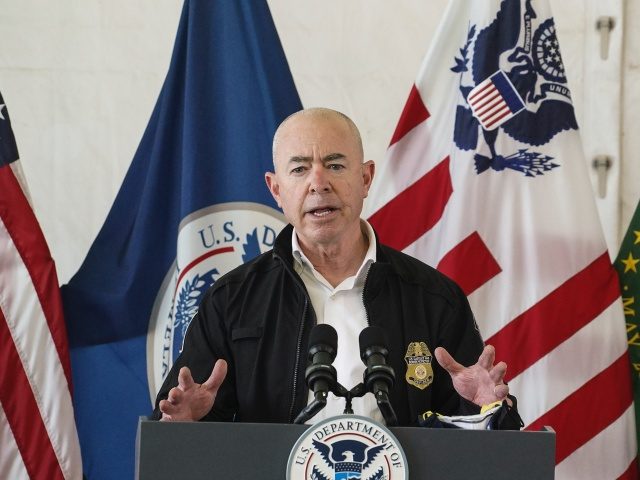Department of Homeland Security Secretary Alejandro Mayorkas confirmed Friday that Haitian migrants crossing the Southern border were not tested for coronavirus before they were released into the United States.
“We did not test that population of individuals,” Mayorkas said when asked by reporters about the possibility of migrants contracting the virus in the makeshift camp under the bridge in Del Rio, Texas, that held over 15,000 migrants last week.
Mayorkas spoke about the migrant crisis during an appearance at the daily press briefing at the White House.
He said that DHS officials set up medical tents with 150 medical professionals to help the population of migrants but claimed he was personally not sure if any of them got sick with the coronavirus.
“We certainly had some individuals get sick, not specifically with COVID, to my knowledge,” Mayorkas said.
He confirmed that some of the migrants were released in the United States, but used the term “alternatives to detention” to describe the process. --->READ MORE HERE
 |
| Go Nakamura/Getty Images |
Alejandro Mayorkas, the nation’s border security chief, used his White House press conference on Friday to tell migrants how to get through the Title 42 coronavirus emergency rules.
Federal law allows border officers to exclude migrants because of the Title 42 emergency rules for the coronavirus epidemic.
But Mayorkas spotlighted some of the Title 42 exceptions that he grants — including the little-known exception for people who claim to be afraid of torture in their home country.
Number one [exception] is if an individual has an acute vulnerability, such as an urgent medical care. And [number] two, if, in fact, our operational capacity is such that we are not able to execute the Title 42 authority … I should also say that there is a [third] Convention Against Torture exception if someone claims torture.
In case any cellphone-linked migrants do not hear the torture exception, Mayorkas repeated it:
If someone is not subject to Title 42 expulsion for the three reasons that I explained — acute vulnerability, operational capacity limitations, or a Convention Against Torture exception — then the individual is placed in immigration proceedings. That means they [can stay and work in the United States] until [they] go before an immigration judge in an immigration court.
Mayorkas’ advice will be a useful guide to the many economic migrants from Chile, Brazil, and other stable countries who are trying to get Americans’ jobs and housing. --->READ MORE HERE
If you like what you see, please "Like" us on Facebook either here or here. Please follow us on Twitter here.


No comments:
Post a Comment